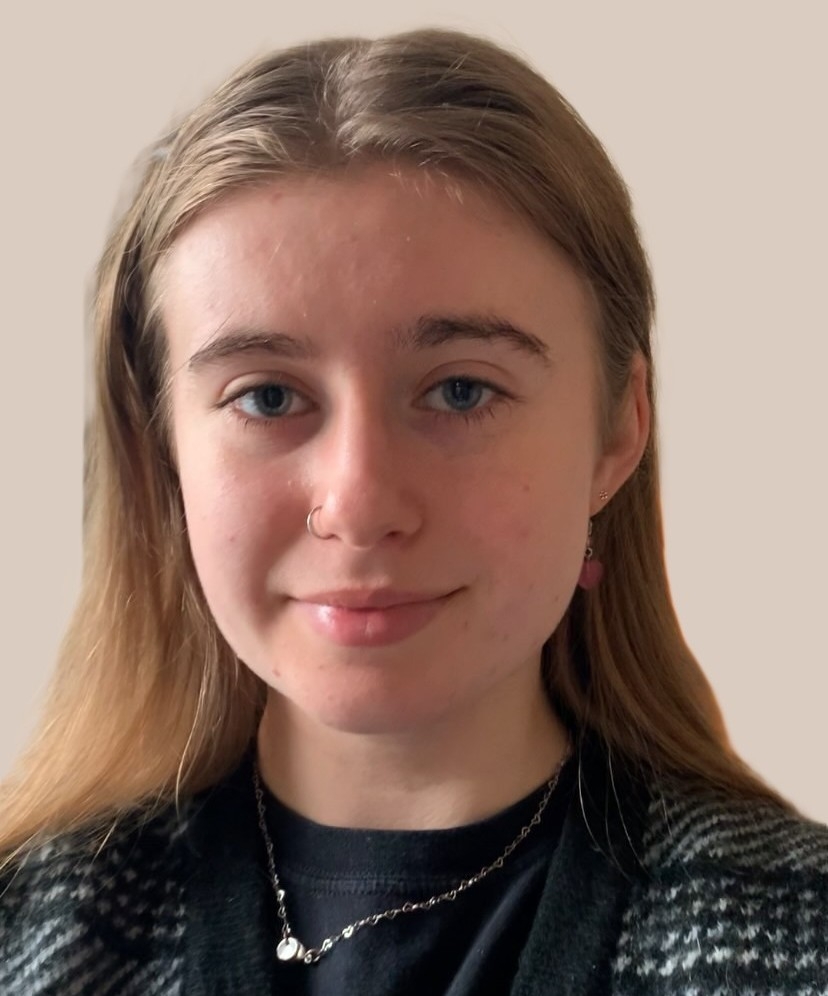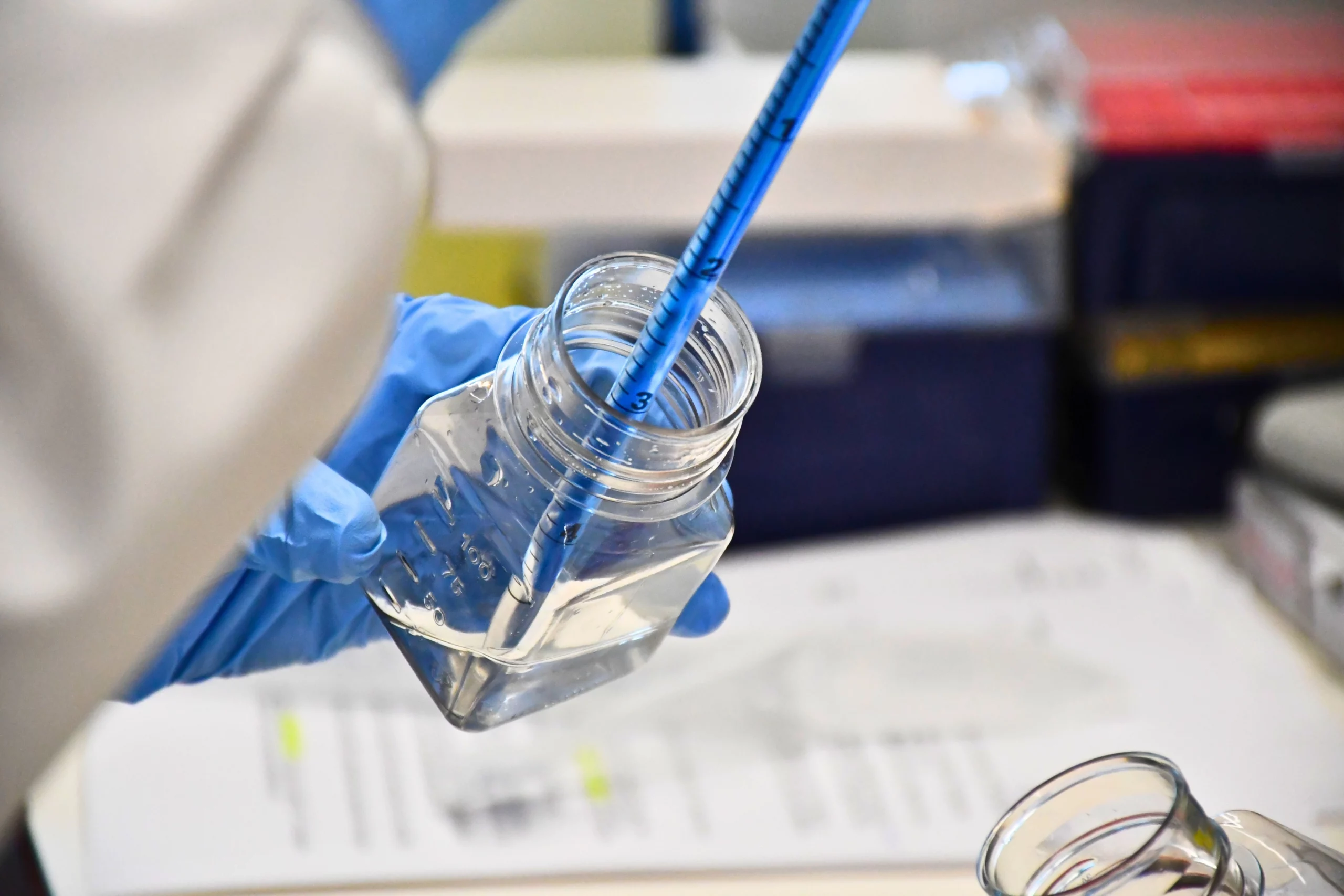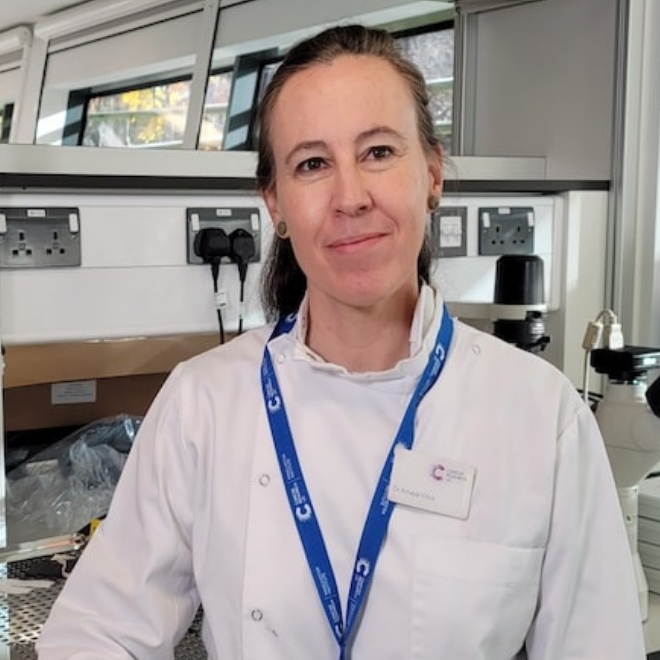Article highlights & insights
EP300/CBP are histone acetyltransferases recruited onto chromatin by oncogenic transcription factors and control the transcriptional program via their activity in enhancer areas.
Here, Nicosia et al. offer new promise in targeting EP300/CBP using the small-molecule inhibitor CSS1477 in patients with blood tumours and no other therapeutic options.
CCS1477 (inobrodib) is a potent, selective EP300/CBP bromodomain inhibitor which induces cell-cycle arrest and differentiation in hematologic malignancy model systems. In myeloid leukemia cells, it promotes rapid eviction of EP300/CBP from an enhancer subset marked by strong MYB occupancy and high H3K27 acetylation, with downregulation of the subordinate oncogenic network and redistribution to sites close to differentiation genes. In myeloma cells, CCS1477 induces eviction of EP300/CBP from FGFR3, the target of the common (4; 14) translocation, with redistribution away from IRF4-occupied sites to TCF3/E2A-occupied sites. In a subset of patients with relapsed or refractory disease, CCS1477 monotherapy induces differentiation responses in AML and objective responses in heavily pre-treated multiple myeloma. In vivo preclinical combination studies reveal synergistic responses to treatment with standard-of-care agents. Thus, CCS1477 exhibits encouraging preclinical and early-phase clinical activity by disrupting recruitment of EP300/CBP to enhancer networks occupied by critical transcription factors.
EP300/CBP are histone acetyltransferases recruited onto chromatin by oncogenic transcription factors and control the transcriptional program via their activity in enhancer areas.
Here, Nicosia et al. offer new promise in targeting EP300/CBP using the small-molecule inhibitor CSS1477 in patients with blood tumours and no other therapeutic options.
CCS1477 (inobrodib) is a potent, selective EP300/CBP bromodomain inhibitor which induces cell-cycle arrest and differentiation in hematologic malignancy model systems. In myeloid leukemia cells, it promotes rapid eviction of EP300/CBP from an enhancer subset marked by strong MYB occupancy and high H3K27 acetylation, with downregulation of the subordinate oncogenic network and redistribution to sites close to differentiation genes. In myeloma cells, CCS1477 induces eviction of EP300/CBP from FGFR3, the target of the common (4; 14) translocation, with redistribution away from IRF4-occupied sites to TCF3/E2A-occupied sites. In a subset of patients with relapsed or refractory disease, CCS1477 monotherapy induces differentiation responses in AML and objective responses in heavily pre-treated multiple myeloma. In vivo preclinical combination studies reveal synergistic responses to treatment with standard-of-care agents. Thus, CCS1477 exhibits encouraging preclinical and early-phase clinical activity by disrupting recruitment of EP300/CBP to enhancer networks occupied by critical transcription factors.
Institute Authors
Groups
Group leader
Research topics & keywords
Grants
This study was supported by Cancer Research UK (C5759/A20971 and C5759/A27412; L.N., F.M.R.A., B.R., J.A.C., A.M.-D., F. Camera, F. Ciceri, and T.C.P.S.), CellCentric (G.J.S.), Imago Biosciences (N.J.B.) and Leukaemia UK (2020/JGF/005, B.W.)
Meet the Research Team
Here are the authors on this paper from the Leukaemia Biology group, led by Tim Somervialle.
Luciano and Gary contributed equally to this paper and are joint authors. Tim is the lead contact.

Senior Group Leader

Senior Scientific Officer

Postdoctoral Scientist
Our Research
Our research spans the whole spectrum of cancer research from cell biology through to translational and clinical studies
Research Groups
Our research groups study many fundamental questions of cancer biology and treatment
Our Facilities
The Institute has outstanding core facilities that offer cutting edge instruments and tailored services from expert staff
Latest News & Updates
Find out all our latest news
Careers that have a lasting impact on cancer research and patient care
We are always on the lookout for talented and motivated people to join us. Whether your background is in biological or chemical sciences, mathematics or finance, computer science or logistics, use the links below to see roles across the Institute in our core facilities, operations teams, research groups, and studentships within our exceptional graduate programme.

















